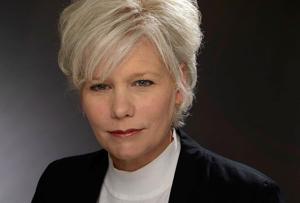
News
September 25, 2025
ASK THE MONEY LADY: The pros and cons of using a reverse mortgage to tap into your home equity
The Money Lady writes about the eligibility criteria, costs, interest rates and suitability of a reverse mortgage for older Canadians, providing advice on managing interest charges effectively.
**ASK THE MONEY LADY: Is a Reverse Mortgage Right for You? Weighing the Pros and Cons**
For older Canadians seeking financial flexibility in retirement, tapping into home equity can be an attractive option. One method gaining popularity is the reverse mortgage. But is it the right choice for you? "The Money Lady" delves into the intricacies of reverse mortgages, outlining the potential benefits and drawbacks of this complex financial tool.
A reverse mortgage allows homeowners aged 55 and older to borrow money against the equity in their home without having to make regular mortgage payments. The loan, along with accrued interest, is repaid when the homeowner sells the house, moves out, or passes away. This can provide a much-needed source of income for those on a fixed income, helping to cover expenses, fund healthcare needs, or simply enhance their quality of life.
However, "The Money Lady" emphasizes the importance of understanding the eligibility criteria. Lenders typically consider the homeowner's age, the property's value and location, and the amount of existing debt. Meeting these requirements is the first step, but it's crucial to then assess whether a reverse mortgage aligns with your long-term financial goals.
A significant consideration is the cost. Reverse mortgages come with upfront fees, including appraisal fees, legal fees, and origination fees, which can eat into the available equity. Moreover, the interest rates on reverse mortgages are generally higher than those on traditional mortgages. This means the loan balance grows over time, reducing the equity remaining in the home.
"The Money Lady" stresses the importance of carefully managing interest charges. Since no regular payments are required, the interest compounds, leading to a potentially substantial debt. It's vital to understand how the interest accrues and to factor this into your financial planning. Strategies for mitigating the impact of interest, such as making voluntary payments when possible, should be explored.
Ultimately, the suitability of a reverse mortgage depends on individual circumstances. It's not a one-size-fits-all solution. "The Money Lady" advises potential borrowers to carefully weigh the pros and cons, seek independent financial advice, and thoroughly understand the terms and conditions before committing to a reverse mortgage. Consider alternative options, such as downsizing or exploring government assistance programs, to ensure you make the best decision for your financial future.
For older Canadians seeking financial flexibility in retirement, tapping into home equity can be an attractive option. One method gaining popularity is the reverse mortgage. But is it the right choice for you? "The Money Lady" delves into the intricacies of reverse mortgages, outlining the potential benefits and drawbacks of this complex financial tool.
A reverse mortgage allows homeowners aged 55 and older to borrow money against the equity in their home without having to make regular mortgage payments. The loan, along with accrued interest, is repaid when the homeowner sells the house, moves out, or passes away. This can provide a much-needed source of income for those on a fixed income, helping to cover expenses, fund healthcare needs, or simply enhance their quality of life.
However, "The Money Lady" emphasizes the importance of understanding the eligibility criteria. Lenders typically consider the homeowner's age, the property's value and location, and the amount of existing debt. Meeting these requirements is the first step, but it's crucial to then assess whether a reverse mortgage aligns with your long-term financial goals.
A significant consideration is the cost. Reverse mortgages come with upfront fees, including appraisal fees, legal fees, and origination fees, which can eat into the available equity. Moreover, the interest rates on reverse mortgages are generally higher than those on traditional mortgages. This means the loan balance grows over time, reducing the equity remaining in the home.
"The Money Lady" stresses the importance of carefully managing interest charges. Since no regular payments are required, the interest compounds, leading to a potentially substantial debt. It's vital to understand how the interest accrues and to factor this into your financial planning. Strategies for mitigating the impact of interest, such as making voluntary payments when possible, should be explored.
Ultimately, the suitability of a reverse mortgage depends on individual circumstances. It's not a one-size-fits-all solution. "The Money Lady" advises potential borrowers to carefully weigh the pros and cons, seek independent financial advice, and thoroughly understand the terms and conditions before committing to a reverse mortgage. Consider alternative options, such as downsizing or exploring government assistance programs, to ensure you make the best decision for your financial future.
Category:
Business